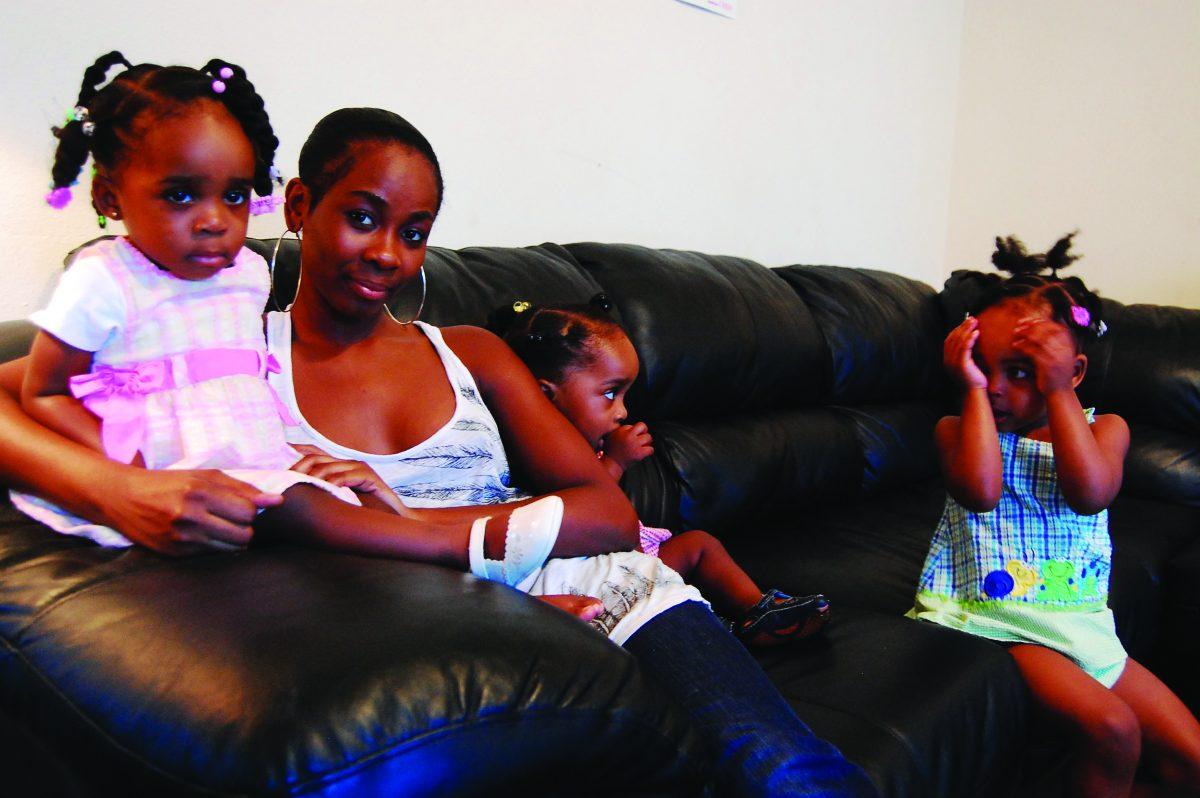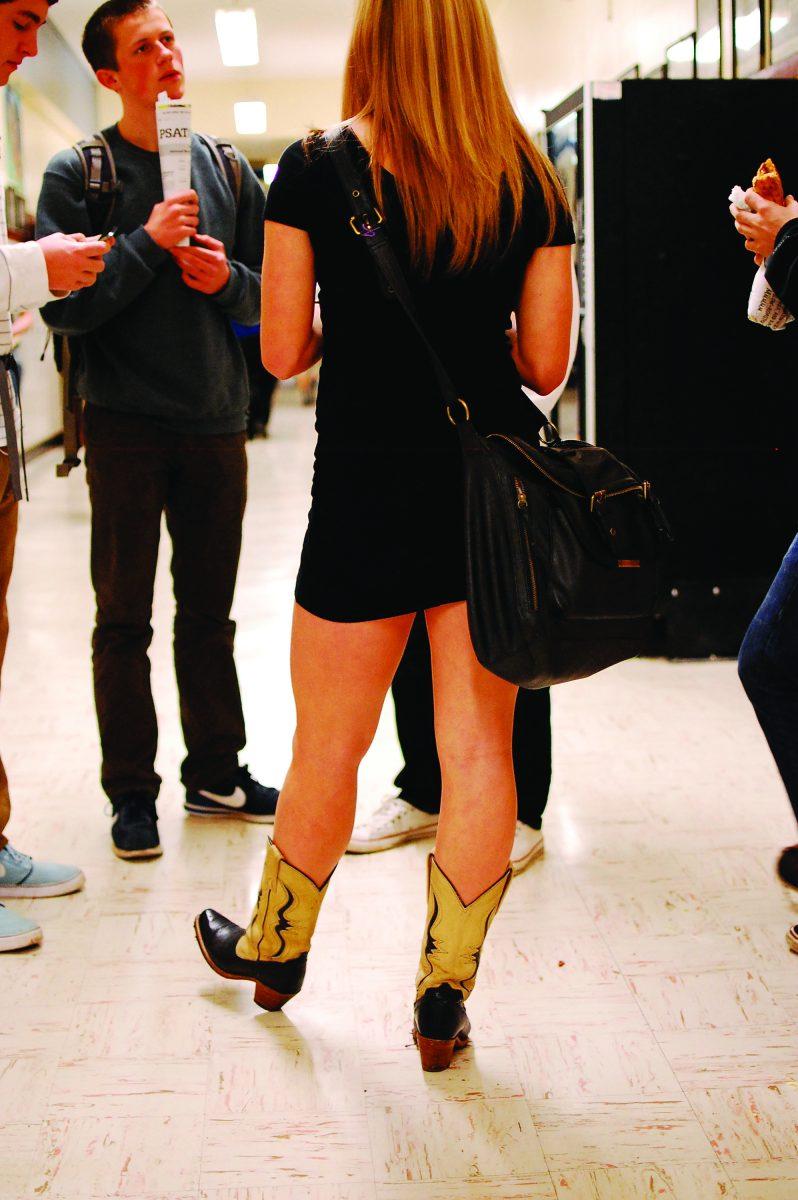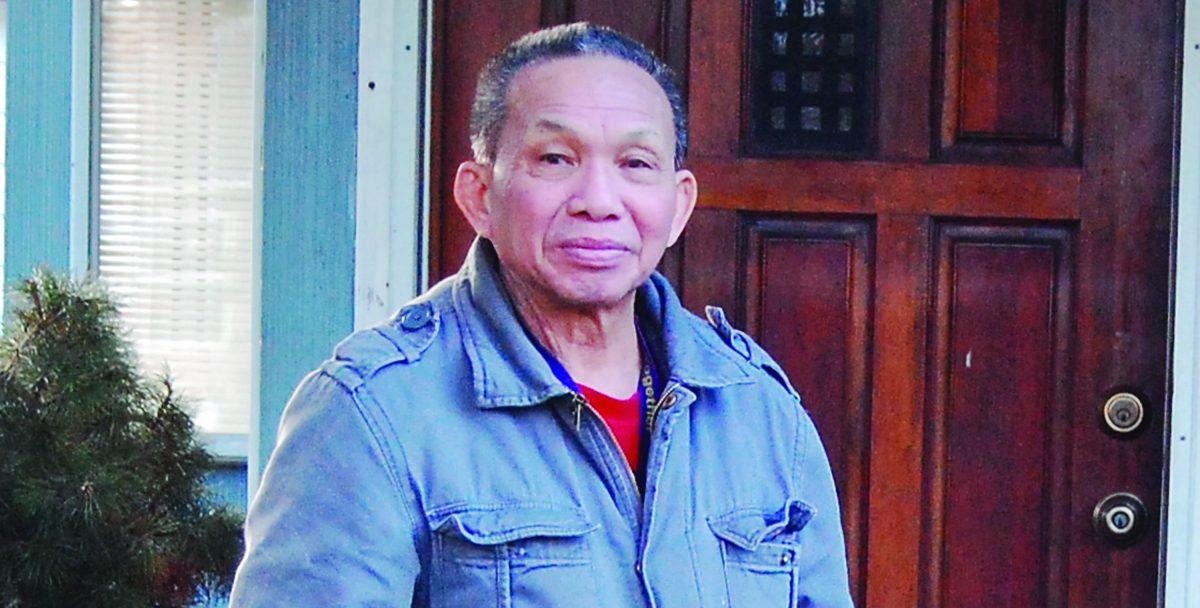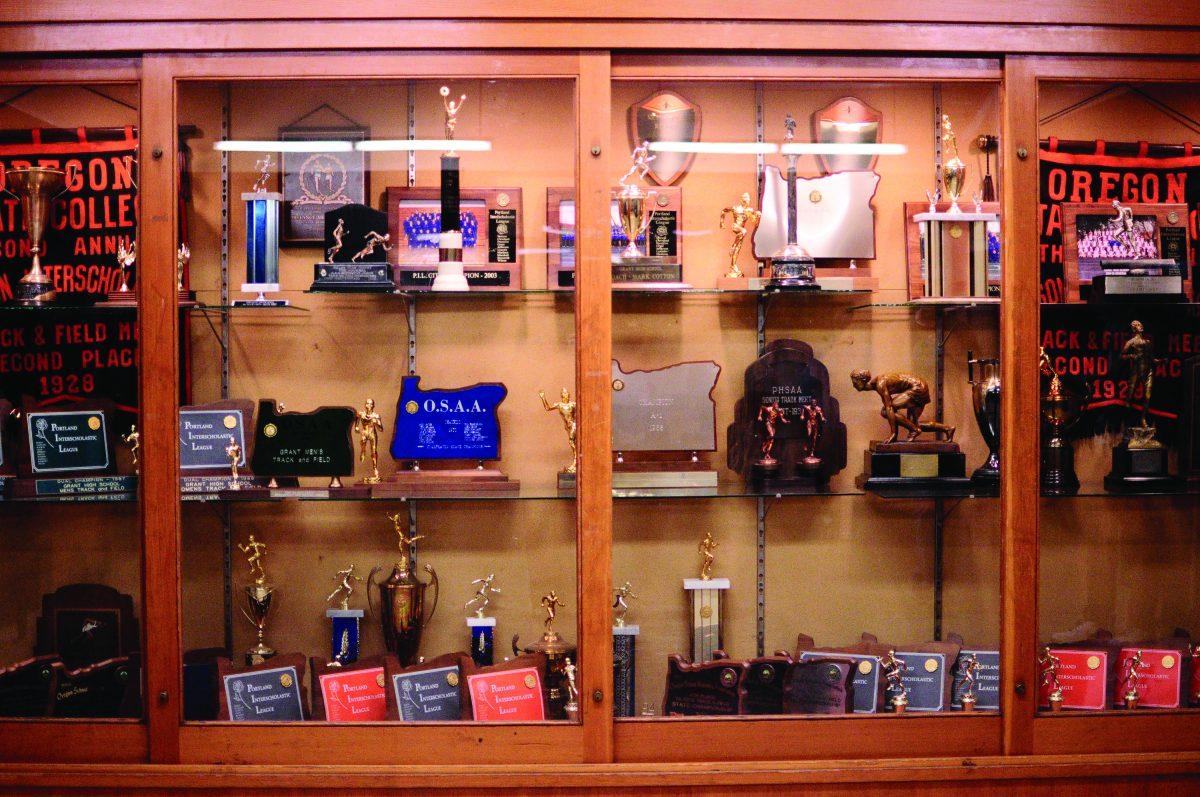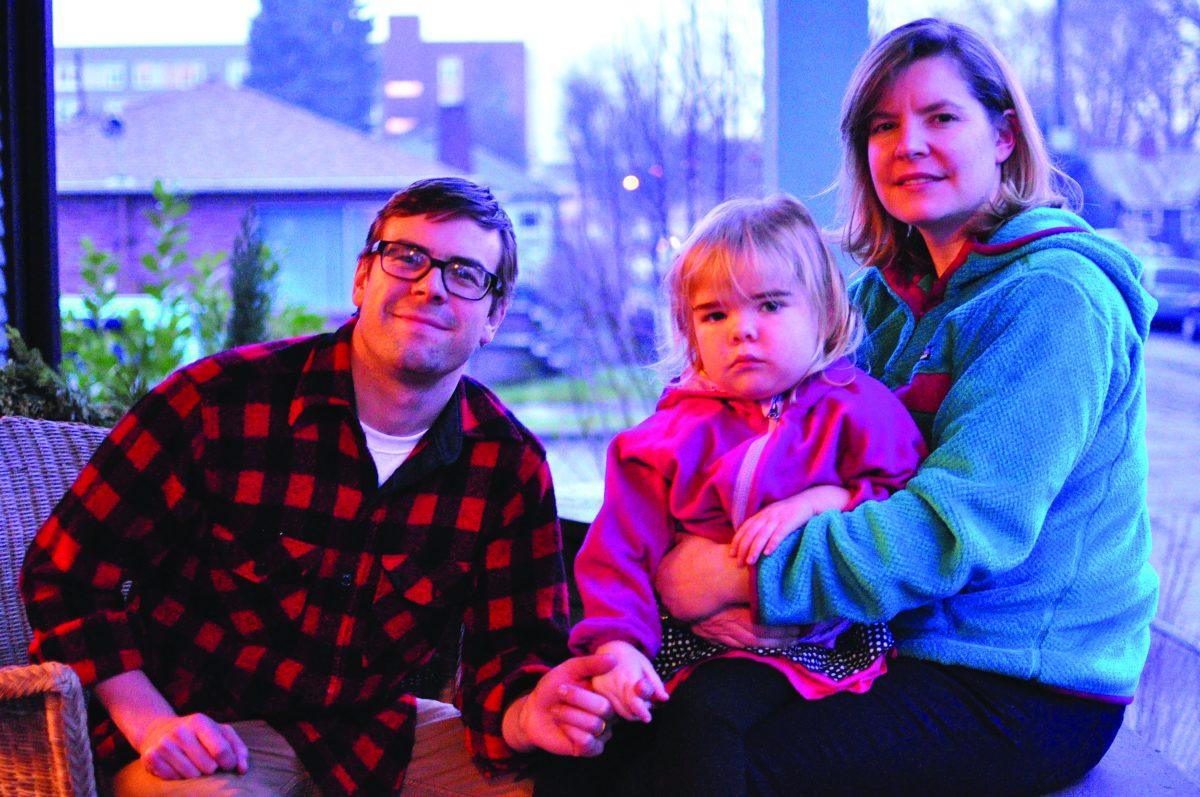When Lisa Cange returned to her home country of Haiti in March 2010, she was greeted by crumbling streets, pulverized buildings and swaths of newly homeless people. She remembers the bus ride from the airport to her aunt’s home as it inched forward past makeshift homes and tents that barely stood against the cold and rain. Cange’s native land had become nearly indistinguishable after a massive, 7.0-magnitude earthquake struck two months earlier.
“If I wanted to go to my home by myself,” she recalls, “I wouldn’t have been able to find it.”
While many seniors at Grant are busy applying to college and looking forward to settling down with steady careers, Cange is setting off on a different kind of path. She plans to go to medical school, become a pediatrician and return to Haiti to open an orphanage. “I dream about doing something for Haiti,” she says.
Cange’s upbringing was far from traditional. Her parents divorced when she was seven months old and she was raised by her aunt. She saw her father once a year during summers. She lost all contact with her mother and didn’t know who she was for more than a decade.
Schools in Haiti had strict behavior policies. “If you didn’t finish your homework, they punished you,” Cange says now, referring to the occasional public scolding and being put in time outs.
By age 12, Cange was desperate to meet her real mother. Relatives found her and the two were reunited. They bonded but within two years Cange was on the move. Her father had moved to Portland and the youngster joined him. “My father wanted me to try something new,” says Cange.
Cange moved in with her father and stepmother, along with two brothers and her twin sisters in 2009. Coming from a tropical climate, Cange had difficulties adapting to Portland weather — particularly on her daily bus rides to and from school. When she was at home, the family kept the heat at 90 degrees during the winter.
She attended summer school and took a freshman English class. “I would just go to summer school and go home and watch TV since I didn’t really have friends,” she says.
It took a while to adjust to different things, such as food. Cange developed a strong dislike for American food and avoided it for her first few months in Portland. “Whenever we went to restaurants, I would just taste the food. I didn’t like it,” she says, noting that she found relief with her stepmother, who is a skilled Haitian chef.
Attending a giant and foreign new school was a challenge, but Lisa’s English as a Second Language class smoothed the transition. In this class, she met her soon to be best friends — Ukrainian twin sisters, Alina and Dasha Strong. Lisa also excelled in French class, as her native language, Creole, is based largely on the Romance language.
While she worked hard at school, Cange’s limited English skills posed a barrier. As Grant’s ESL teacher Tee Kamoshita describes it, non-English-speaking students like Cange are not only being taught new concepts, but they also have to overcome “tremendous linguistic hurdles.”
Cange remembers being stalled in her classes. “Everyone would write so fast and I couldn’t,” she says. “The teacher would talk so fast but I didn’t know what he or she was saying. I would just hide my face in my arms.”
Making friends with limited English proficiency was both difficult and, at times, embarrasing. “Sometimes people wanted to talk to me,” she recalls. “But I’m really shy because of my English.”

Occasionally, Lisa’s discomfort with speaking led her to skip school lunches. She remembers one time last year being in line in the Grant cafeteria. As she approached the counter, she struggled to remember the name of the food she wanted. “What is it? I know this,” she remembers thinking.
Other students in line placed their orders and the line shortened. She turned around and left. No lunch that day. “I just felt really bad because everyone looked at me weird,” Cange says. “I couldn’t remember the name of the food and I didn’t want to ask.”
Things began to move along a little more smoothly when the quake, one of the most horrific natural disasters of the last decade, occurred on Jan. 12, 2010.
The casualties were overwhelming: 316,000 dead; another one million left homeless.
Cange, who had now been living in Portland for about a year, worried about her relatives. “I thought they had died,” she remembers. “We called and called every day, morning, afternoon, night.”
No one answered and the uncertainty took its toll on Cange.
“She was devastated,” recalls Kamoshita remembers. “She didn’t come to school for a week.”
Three days later when phone service was restored, Cange heard that the region where her family lived was mostly unscathed. But a neighbor friend had been killed and one of her cousins was injured.
When she returned to Haiti on the March trip, she gasped at the devastation around her. “To look at my country like that,” she says, “Oh my gosh.”
Countless buildings were shattered in the wake of the earthquake. Rubble was everywhere. “It was really different before…the buildings had crashed. I couldn’t remember where I was,” she recalls. “It was really, really bad.”
The conditions for the newly homeless only got worse. Months of exposure to the cold and rain made many sick, and slow progress was being made toward recovery. Even Lisa’s family, who lived in an unaffected area, had to spend time sleeping outside in case any after shocks hit their region at nighttime.
Seeing all the devastation made Cange think about ways she could make a difference. Because of her situation, she thought about how to do something meaningful in the future. “I dream that if I have a lot of money, I could create an orphanage for the children there,” she says.
Cange’s inspiration comes from her aunt, who dedicated a day every year to bringing food to homeless people throughout Haiti.
Living in America has shown Cange the inequality between the two countries. “Here, if you have like ten dollars, you can buy something to cook,” she says. “In Haiti, you have to have like $100 to cook something.”
This year, Cange is balancing a full schedule of classes with a once-a-week dance class. She doesn’t want extracurricular activities to get in the way of her school work. Her English has improved and she is much more comfortable speaking to other students. Despite the odds against her, Lisa will graduate a year ahead of schedule.
For now, Cange is focused on her future but she vows never to forget her country. She is an active member in her community, performing as part of a Haitian dance troupe in Portland at benefits to aid the stricken country.
“I don’t want to go back and stay forever, but I dream about going to Haiti,” she says. “I want to work with the sick people and orphans. I want to start something that I can come back to and visit, and continue to help with.”



























